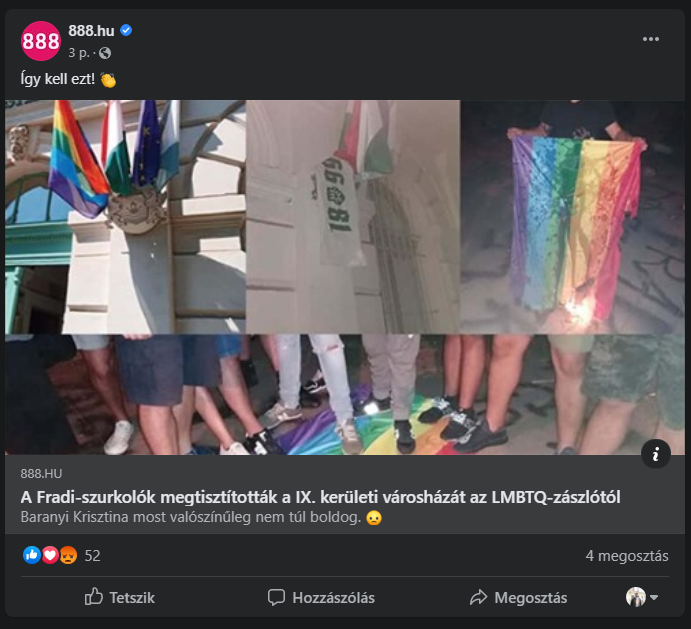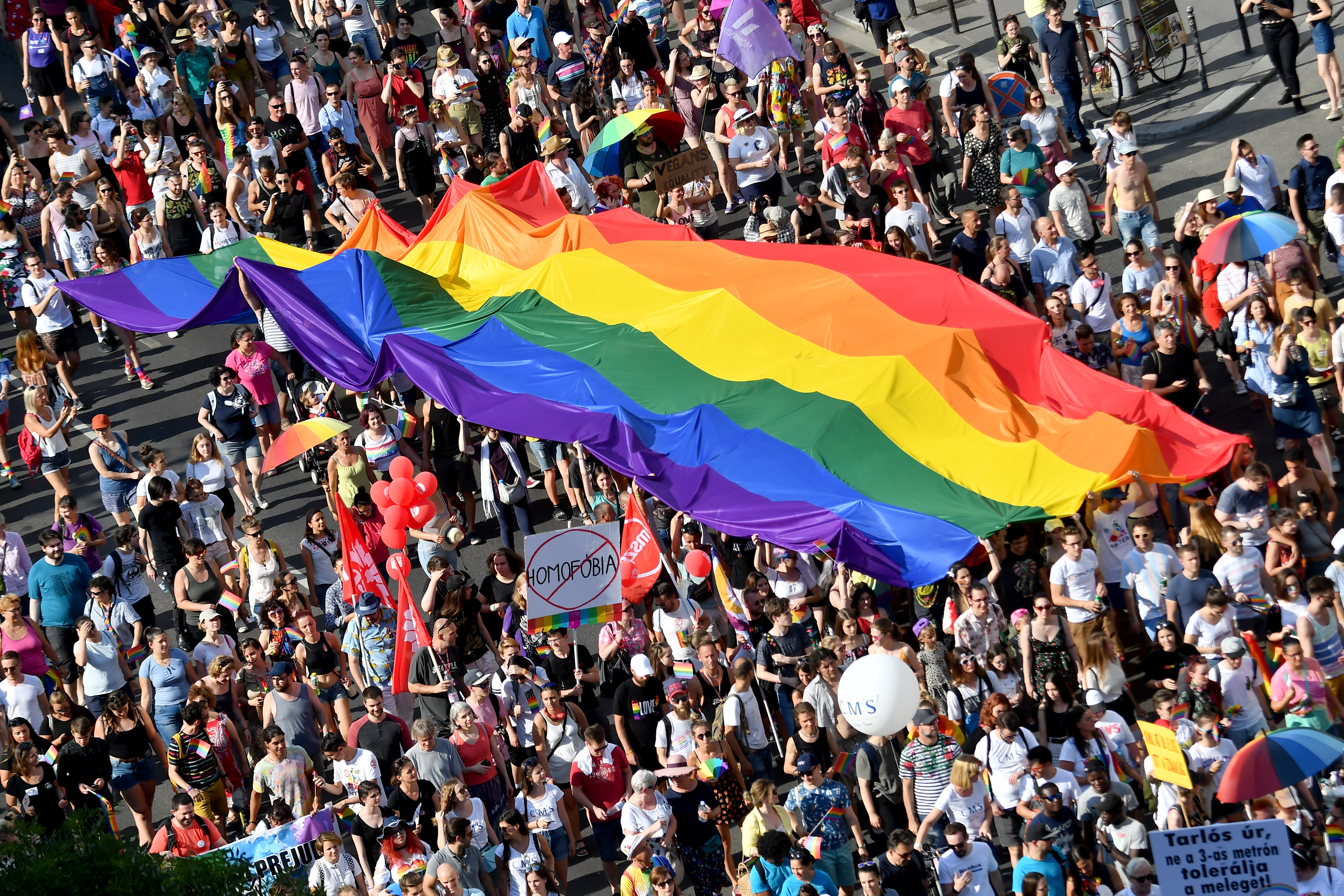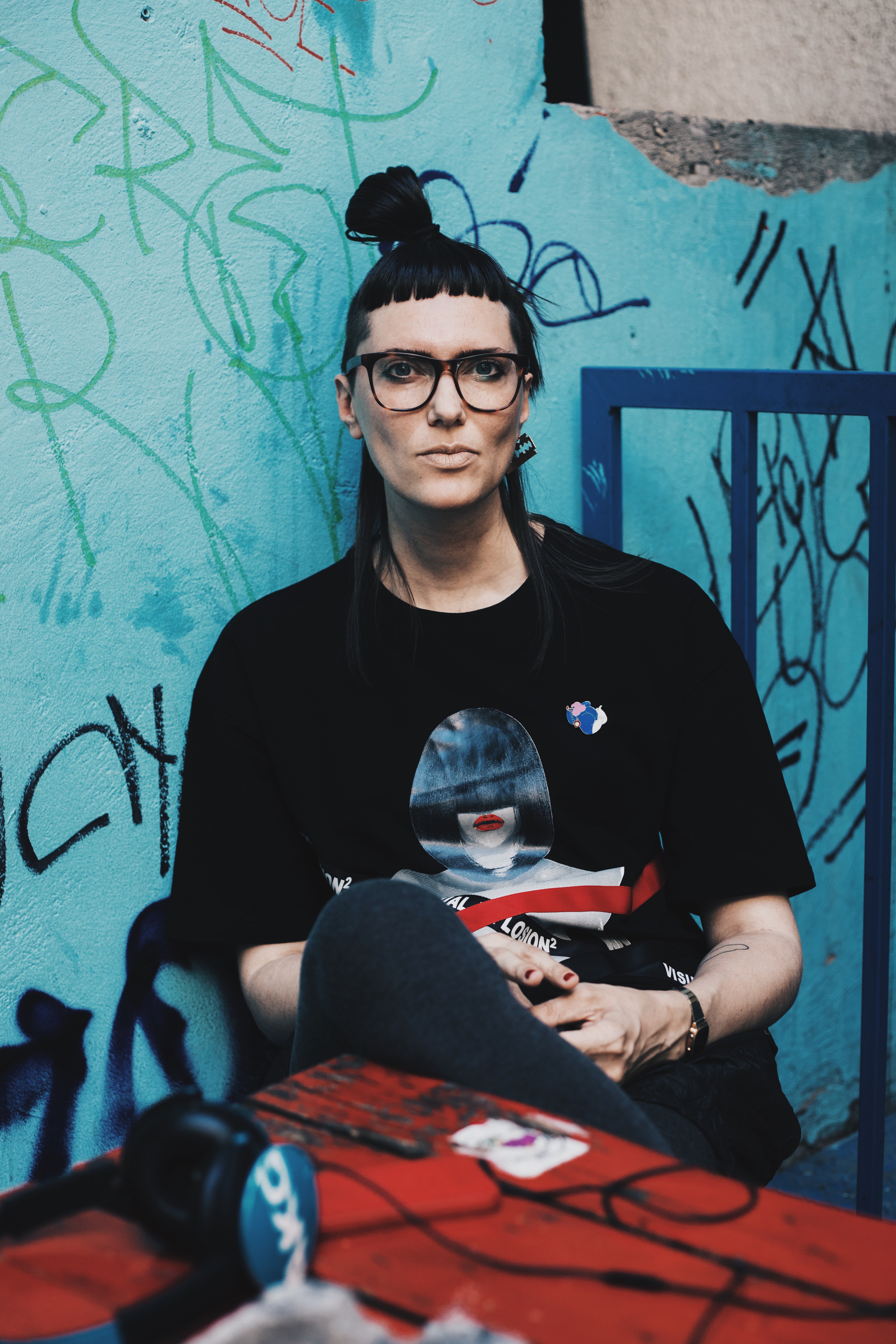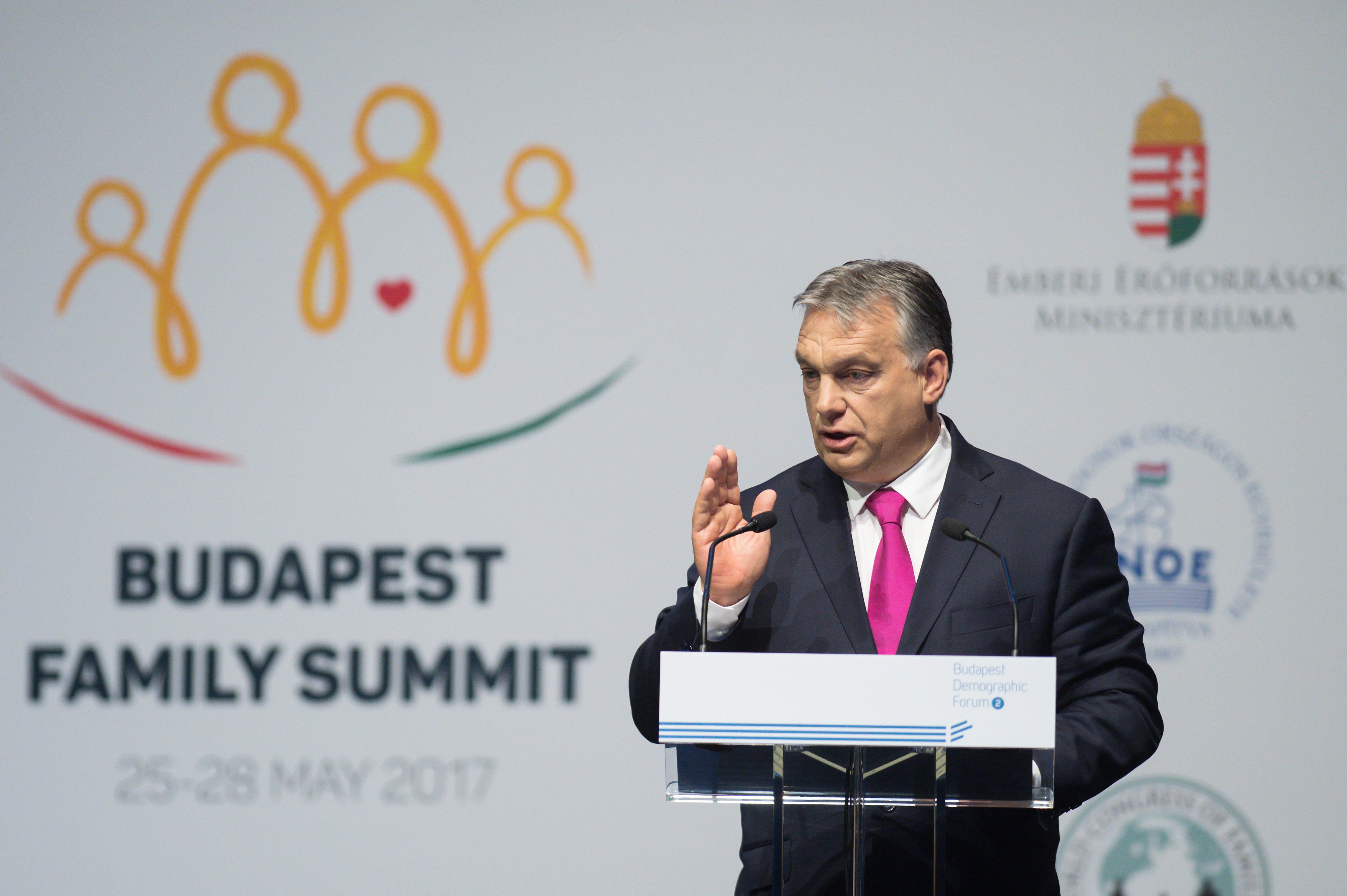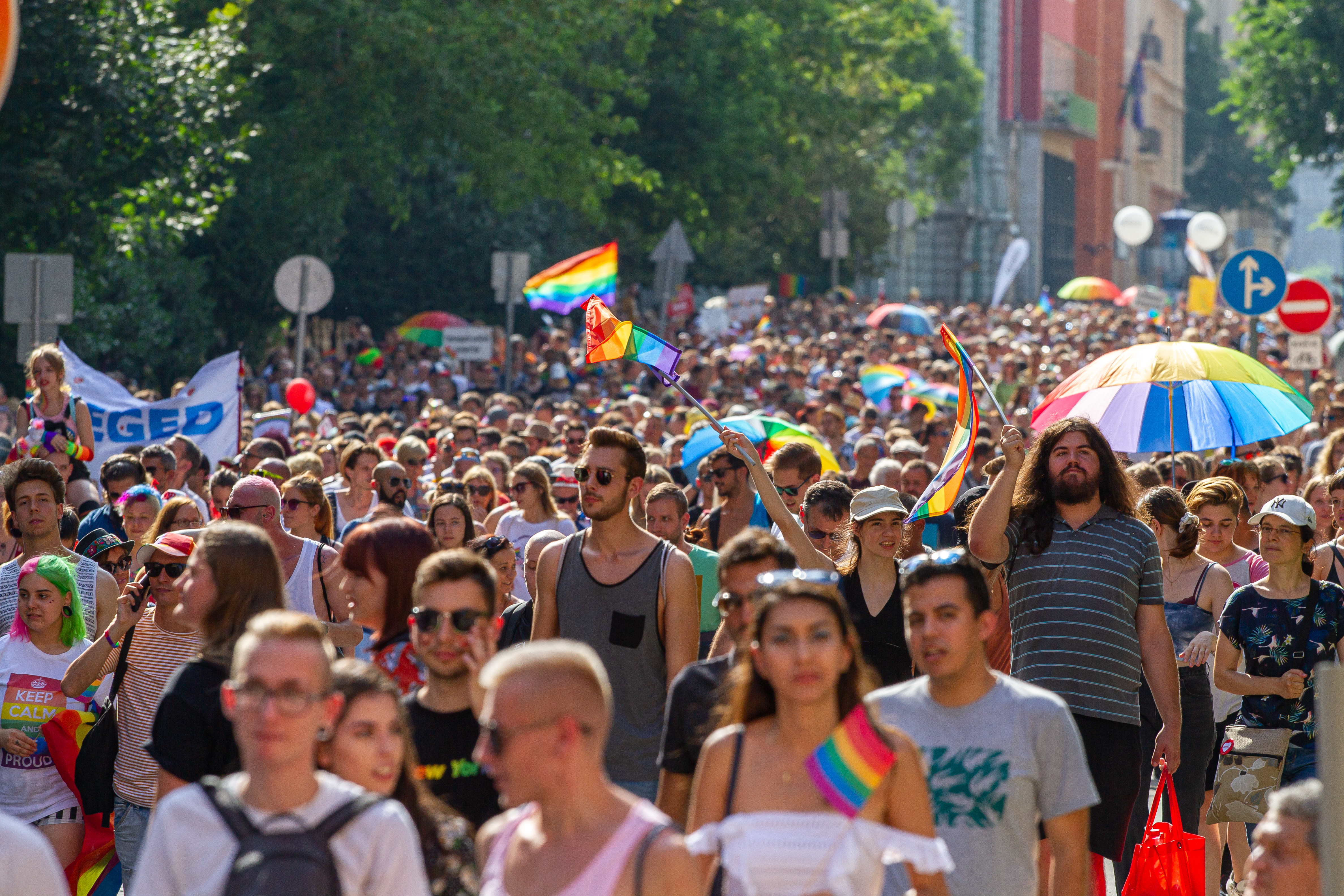
Against the wind: Budapest Pride celebrates its 25th year amid political pushback
- Stay updated on the latest news from Hungary by signing up for the free InsightHungary newsletter:
After two and a half decades of exponential growth, painful struggles, political opposition and perseverance, it took nothing less than a global pandemic to cancel this year's Budapest Pride march.
Now celebrating its 25th year, Budapest Pride can be seen as an ongoing success story for Hungary's lesbian, gay, bisexual, transgender and queer (LGBTQ) community in many respects: from the first small "Pink Picnic" gatherings outside the city center in the early 1990s, the event has grown into a month-long annual festival that is one of the largest in the country. Featuring up to 100 programs each year, it is capped off with a march attended by 20,000 people that winds through the heart of the Hungarian capital, a march which this year, due to pandemic concerns, will not be held.
The increased visibility brought to LGBTQ Hungarians by Pride has, at times, led to notable increases in social acceptance in Hungary, even during the last decade of illiberal governance under Prime Minister Viktor Orbán. But while cultural attitudes show a slow trend of growing tolerance towards the community, social equality on a political level lags behind: same-sex marriage is banned by Hungary's 2011 constitution, and same-sex couples may not jointly adopt children. Lesbian couples are ineligible to receive IVF (in vitro fertilization), and a recent law which bans changing one's name and gender in public records has taken aim at transgender individuals.
These contradictory dynamics have led to what one Budapest Pride organizer, Jojó Majercsik, described as a sort of dual reality for LGBTQ Hungarians: while simultaneously engaged in contemporary debates over, for example, housing insecurity for trans people and gender neutral bathrooms, the broader public discourse on LGBTQ issues in Hungary remains focused on topics that largely lost their currency in the West decades ago: is homosexuality a sickness that can be cured? What are the connections between homosexuality and pedophilia?
These challenges are only exacerbated by a chorus of anti-LGBTQ rhetoric - couched in Christian, pro-family language - ringing ever louder from right-wing political forces in Hungary, Central Europe and around the world. As Budapest Pride has grown from a small, marginalized gathering of a few dozen participants to a major public event, it has also weathered 25 years of repeated attacks, both from individual opponents and from decision makers at the highest levels of government.
An Intimidating Force
In late July, Pride organizers announced they would cancel this year's march over pandemic concerns: instead of the usual month-long festival featuring some 100 events, an abridged schedule of 37 events will be held across a ten-day period in August, without a march.
But the diminished proportions of the festival weren't enough to dissuade some opponents of Pride, and of what government allies have often called "gender ideology", from what has become an annual pre-Pride tradition of targeting the LGBTQ community.
On August 14, the opening day of Pride, football hooligans calling themselves the "Aryan Greens" tore a rainbow flag from the headquarters of Budapest's opposition-led 9th district council, stomping on it and setting it on fire. The group posted photographs of its late-night action to social media, which was applauded by a pro-government website.
Two days later, a co-chair of the neo-Fascist party Mi Hazánk Mozgalom (My Homeland Movement) scaled Budapest city hall with a ladder and removed the rainbow flag placed there - for the first time in the city's history - by Budapest's liberal mayor. As he was questioned by police, the politician ran away with the flag and threw it in a garbage can, claiming it was a "homosexual provocation". (Police later issued him a citation, while several pro-government media outlets praised his action as a "defense of normality" against "anti-family Western madness that is descending into hell and falling into decadence and the celebration of insane perversions".)
Such provocations against Pride and LGBTQ Hungarians are not uncommon, and usually accelerate in the weeks ahead of the festival, said Pride organizer Ádám Csikós, adding that the organization uses such attacks as a means to raise money. Last year, for example, they were able to buy a giant rainbow flag with donations from sympathetic supporters.
While attacks in recent years have mostly been limited to verbal intimidation and disruption of events, Budapest Pride participants earlier endured a period of violent assaults.
In 2013, three men walking home from the Pride march encountered a large group of black-clad counter demonstrators. The group shouted racist and homophobic slurs at the men as they violently assaulted them. In 2016, five men from the group were convicted of violent hate crimes, and it was revealed that they all were members of ethno-nationalist militia group New Hungarian Guard.
Earlier, counter demonstrators routinely attended the Pride march to hurl eggs, bottles, rocks and other objects at marchers. In 2007, after being pelted with projectiles and verbal abuse for the length of the parade, LGBTQ participants incurred 11 physical assaults from right-wing protesters, some requiring hospitalization. The following year, organized opposition to the parade was even greater: police used tear gas and water cannon to disperse anti-LGBTQ rioters who hurled petrol bombs and rocks at marchers and LGBTQ spaces. 45 arrests were made.
After the violence of 2007-2008, Budapest police insisted on cordoning off the entirety of the march route, making it impossible for participants to enter or exit the procession except at the beginning and end. While the stated aim of the cordons was to protect participants from attacks, Pride organizers argued they disproportionately restricted their freedom of assembly and represented a cage around the march.
In 2017, Pride organizers declared that march participants would not be contained within the police cordons. As marchers neared the end of the route, they broke through the cordons and proceeded along open streets, an act of civil disobedience meant to demonstrate their liberation from the barriers. Since then, police have not cordoned off the march, but instead placed barriers around right-wing counter demonstrators. Pride organizers also train their own volunteer escorts to secure the route and other programs and to mitigate potential conflicts.
Successfully putting an end to the cordons was considered a victory by Pride participants, and according to Majercsik and Csikós, far fewer anti-LGBTQ protesters attend the march than in past years. Beyond a small group of hardcore opponents, it has fallen out of fashion among the far-right to heckle the Pride march, they said, partially due to how large it has become.
"They feel that they get lost in this huge crowd," Csikós said. "But if they are able to mobilize ten people to disrupt a program where there are 20 participants, then proportionally they are much better able to create a stir for themselves in the press."
Even in such small numbers, such attacks on Pride programs have not been without their effect on the community, Majercsik said.
“[Attacks] aren't only a problem because they can make a program fizzle out, which is sad enough. Imagine an 18-year-old LGBTQ guy who came to a Pride event for the first time in his life. If he sees a program getting busted up, he might never dare to go to any event ever again, not even to a film screening. There is an intimidating force to this, and that’s why they do it. To make everyone stay at home.”
Claim Back Your Future
One of Pride's aims is to bring issues facing the LGBTQ community into the public eye throughout the year, not only during the festival or when the community faces attacks, Majercsik said. The march brings visibility to the community and the problems it faces, which has led to an explosion of participation among non-LGBTQ people and other sympathisers.
But despite the increased support among certain segments of Hungarian society, the organization still considers Pride to be a political project which pushes for "a world where LGBTQ people are not discriminated against systemically and routinely because of their gender identity and/or sexual orientation", a goal that still seems far off in Hungary.
The Budapest Pride manifesto, adopted in 2013, states that the organization is fundamentally anti-racist and feminist. The slogan of this year's festival, "Claim back your future," reflects Pride programs which address issues facing LGBTQ people and other minorities: the housing crisis, climate change, racism within the LGBTQ community, and the erosion of democracy.
This year's festival will also address the latest blow to LGBTQ rights in Hungary, a law adopted in May amid the coronavirus lockdown - and on International Transgender Day of Visibility - which ends legal recognition of transgender people, a step Amnesty International said brought Hungary "back to the dark ages".
The law stipulates that the "biological sex" of a man or a woman is defined by their primary sex characteristics and chromosomes at birth. It does not allow for any other gender categories, and prohibits gender-neutral names. (In Hungary, a list of approved, gender-sorted first names is kept by the Hungarian Academy of Sciences.) Transgender people, therefore, may not alter their names or genders in official records, which critics say will lead to increased discrimination and an invasion of privacy, forcing them to reveal themselves as transgender whenever they present official documents.
Csikós, who is transgender, said the law is more strict than similar laws in Russia, and leaves those who earlier successfully changed their names and genders in a state of uncertainty, not knowing whether the state could reverse previously successful alterations.
“Yes, I was able to change it once, but what happens if they single me out one day?" he said. "It doesn’t matter that my voice is deep, that I have a beard, that everybody believes that I’m a man and no one assumes that I’m transgender. I would have to live with this exterior but get back my past, get back my old name, which I really do not want. It’s horrible to think about, and it really is a possibility.”
The law was criticized by the European Parliament, the United Nations High Commissioner for Human Rights, the Council of Europe, and Háttér Society, a Hungarian LGBTQ rights organization, which argued it was unconstitutional. Hungary's Constitutional Court could strike down the law, but questions over the court's independence make such a decision unlikely.
An Erosion of Rights
The passage of the law reflects an atmosphere of growing hostility toward LGBTQ people in Hungary, and an erosion of LGBTQ rights within Hungary's legal order.
For example, in 2018, Parliament passed a law banning gender studies programs in Hungarian universities. Deputy Prime Minister Zsolt Semjén said at the time that the programs "have no business in universities...It's an ideology, not a science."
In 2017, Prime Minister Viktor Orbán welcomed the 11th World Congress of Families, which has been criticized for its fierce opposition to gay rights. The four-day international conference in Budapest came as the Hungarian government was launching a series of costly measures to boost marriage and birth rates in Hungary, which have stagnated for years.
Hungary's major emphasis on family policy (a "minister for family affairs" was appointed in 2014) has gone hand in hand with its hard stance against both LGBTQ rights and immigration. The government has drawn a parallel between its rejection of immigrants and promotion of traditional families, arguing that shutting out immigrants and refugees preserves Europe's Christian identity, and that its family policy aims to remedy demographic challenges through the birth of Hungarian children rather than through migration.
Such legal measures limiting the rights of LGBTQ Hungarians have been accompanied by routine homophobic comments by some government officials and pro-government commentators. In 2019, Speaker of the National Assembly László Kövér compared same-sex adoption to pedophilia, and declared that "a normal homosexual knows how the world works...They try to adapt to this world without considering themselves necessarily equal."
Ahead of last year's Pride festival, the deputy caucus leader of the governing Fidesz party called for Pride to be banned, arguing Hungarian children "must be protected from open sexual aberrations". The same politician later set off a furor after calling for a boycott on Coca-Cola after the company placed anti-prejudice billboards in Budapest featuring same-sex couples. Pro-government media joined in the calls for a boycott, with one outlet writing, “The homosexual lobby is laying siege to Budapest".
A petition to remove the ads received more than 41,000 signatures, and a consumer watchdog later fined Coca-Cola for the campaign, saying it violated a law which prohibits advertisements that "damage the physical, mental, emotional, or moral development of children".
Csikós and Majercsik said such homophobic rhetoric from politicians has likely contributed to a decrease in tolerance of LGBTQ people in recent years: a 2019 Eurostat survey showed that Hungarians were among the least accepting of homosexual and transgender people in the EU, with significant decreases since 2015. In its 2020 LGBTQ human rights survey of 49 European countries, ILGA-Europe, an international LGBTQ advocacy organization, showed that Hungary had dropped from 19th to 27th place in a single year. The survey was conducted prior to the passage of the law on legal recognition of transgender people.
Amid such deteriorating conditions, Budapest Pride has worked to expand its efforts beyond the capital and into the Hungarian countryside. Majercsik said Pride has put an emphasis on supporting not only middle-class gay men in Budapest, but other more vulnerable LGBTQ individuals struggling with poverty and discrimination. The organization collects donations each year to assist smaller local organizations in other Hungarian cities, and on some years, five cities outside the capital have had Pride programs.
The organizers said they are happier now that new liberal leadership has taken office in Budapest. Contrary to the previous conservative mayor of Budapest István Tarlós, who was known for making homophobic comments (he once said of Pride, "the whole phenomenon is unnatural and repulsive to me"), the organizers say they have met for discussions with mayor Gergely Karácsony, who is significantly more open to cooperation.
Still, Csikós said, "The sad truth is that there are almost no LGBTQ issues on the [opposition] parties’ platforms."
“That’s part of why the festival and march are so important," he said. "The message shows that yes, people have to go out on the street and stand up for their interests, because otherwise no one else will.”
This article is published as part of a project to promote independent digital media in Central and Eastern Europe funded by the National Endowment for Democracy and coordinated by Notes from Poland.


